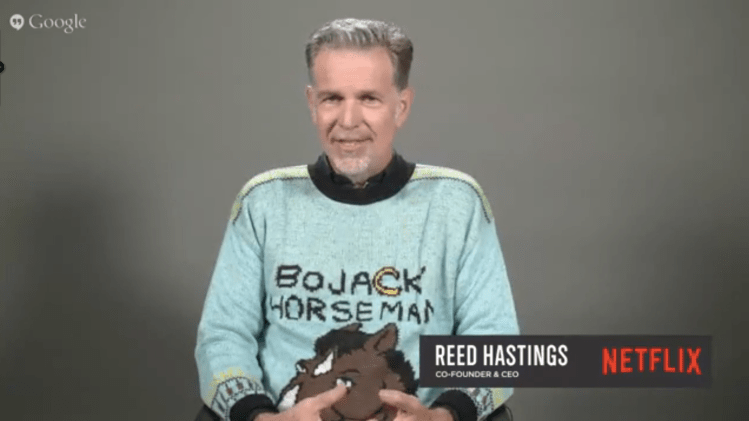When it comes to Netflix’s development of original programming, there’s been a lot of focus on the company’s use of data to create its slate of new shows.
But during an appearance at the DLD Conference in Munich, Germany today, CEO Reed Hastings cautioned that gut instinct is still just as important when it comes to making final decisions.
“We start with the data,” Hastings said. “But the final call is always gut. It’s informed intuition.”
He called Ted Sarandos, the man in charge of Netflix’s original programming, the man with the “golden gut.”
June 5th: The AI Audit in NYC
Join us next week in NYC to engage with top executive leaders, delving into strategies for auditing AI models to ensure fairness, optimal performance, and ethical compliance across diverse organizations. Secure your attendance for this exclusive invite-only event.
It’s an interesting lesson in an age that seems to have a growing obsession with the promise of big data to transform both our business and personal lives. Hastings, who was an artificial intelligence engineer before he cofounded Netflix in 1997, said the human element is still critical.
In the case of Netflix, Hastings said there is a distributed group of executives and managers who have authority to make the final call over content and programming in their area.
He explained that now that Netflix’s slate of original content has become so large, programming is no longer about placing a few make-or-break bets.
“The advantage of Netflix at this stage is that we get to make a number of bets in parallel and manage it like a portfolio,” he said.
Hastings added that original programming has become essential to the company’s international growth, noting that many shows transcend borders and language. In the case of the show “Narcos,” Hastings explained that it takes place in South America but was produced by a French studio and has become very popular in Germany.
Another show, “Atelier,” takes place in Japan, but has likewise become an international hit.
“Our content has proven to be very popular,” Hastings said. “It’s not all that people watch. But it’s enough content to get people excited about paying for the service each month.”


